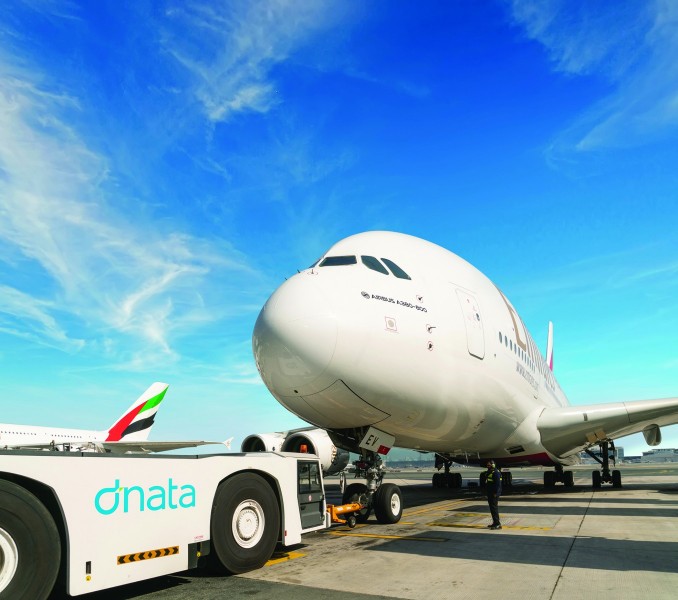The Emirates Group posted a record profit of $ 3.0 billion compared with $1.0 billion loss for 2022. For the financial year ending March 31 2023, the Group reported a revenue was $ 32.6 billion an increase of 81% over last year’s results. The Group’s cash balance was $ 11.6 billion the highest ever reported, up 65% from last year mainly due to strong demand across its core business divisions and markets.
Proud of the Group’s performance for 2022-23 HH Sheikh Ahmed bin Saeed Al Maktoum, Chairman and Chief Executive, Emirates airline and Group, said: “We had anticipated the strong return of travel, and as the last travel restrictions lifted and triggered a tide of demand, we were ready to expand our operations quickly and safely to serve our customers. Our ongoing investments in our brand, and in our products and services, helped drive customer preference and position us favourably in the market. As a result, we have delivered a record financial performance and cash balance for our financial year 2022-23. This reflects the strength of our proven business model, our careful forward planning, the hard work of all our employees, and our solid partnerships across the aviation and travel ecosystem.”
To support expanded operations and to bolster the Group’s future capabilities, Emirates and dnata ramped up recruitment activity across the globe during the year. As a result, the Group’s total workforce increased by 20% to 102,379 employees, representing over 160 different nationalities.
In 2022-23, the Group collectively invested $ 2.0 billion in new aircraft, facilities, equipment, companies, and the latest technologies to position the business for future growth. Our commitments include a massive multi-billion dollar aircraft cabin retrofit programme; an order for 5 new 777 freighters; the building of a new pilot training centre; the opening of Bustanica, the world’s largest vertical farm in Dubai under a partnership with CropOne; new training aircraft for its cadets at Emirates Flight Training Academy; dnata’s acquisition of 30% shares to gain full ownership of its ground handling operations in Brazil; and the building of a new advanced cargo facility in Erbil, Iraq.
The Emirates Group signed up to the United Nations Global Compact, a voluntary initiative where Emirates and dnata will work towards making the UN Sustainable Development Goals (SDGs) and Principles part of their strategy, culture, and operations.
Emirates successfully conducted a demonstration flight with 100% sustainable aviation fuel (SAF) in one engine of a Boeing 777. dnata in 2022-23 pledged to invest $100 million over 2 years, to improve environmental efficiency across its global business, supporting its goal to reduce its carbon footprint by 50% by 2030.
“We go into 2023-24 with a strong positive outlook and expect the Group to remain profitable. We will work hard to hit our targets while keeping a close watch on inflation, high fuel prices, and political and economic uncertainty,” Al Maktoum added.
Emirates’ total passenger and cargo capacity increased by 32% to 48.2 billion ATKMs in 2022-23, as the airline continued to reinstate passenger services across its network in line with the lifting of pandemic-related flight and travel restrictions.
In addition to launching services to Tel Aviv, Emirates relaunched flights to six destinations and increased operations to 62 cities across its network throughout the year to serve strong customer demand. By March 2023, the Emirates network comprised 150 destinations across six continents, including 9 cities served by its freighter fleet only.
Emirates received two new 777 freighters and phased out 4 older aircraft comprising of 2 A380, 1 Boeing 777-300ERs and 1 Freighter. Its total fleet count at the end of March was 260 units, with a youthful average fleet age of 9.1 years.
Emirates’ order book stands at 200 aircraft, including 5 additional Boeing 777-300ER freighter orders announced during 2022-23.
Emirates’ total revenue for the financial year increased 81% to $ 29.3 billion with increase of 57% in the total operating cost. With the removal of pandemic-related travel restrictions globally, the airline substantially improved its financial results and reported a record profit of $ 2.9 billion after last year’s $ 1.1 billion loss, and an exceptional profit margin of 9.9%, reflecting the best performance in the airline’s history.
Emirates carried 43.6 million passengers up 123% in 2022-23. Emirates’ cargo division reported a solid revenue of $ 4.7 billion. This was a 21% decline over last year’s exceptional performance caused by the pandemic.
Emirates successfully repaid $ 817 million more of the total $ 4.8 billion raised during the COVID-19 crisis. This allowed Emirates to reprice $ 1.2 billion of debt and further raise AED 1.2 billion to finance the acquisition of two new B777 freighter aircraft through an Islamic finance lease at highly effective margins.
Emirates closed the financial year with cash assets of $ 10.2 billion 79% higher compared to March 2022.
dnata increased its profit by 201% to $ 90 million in the FY 2022-23 while the total revenue increased by 74% to US$ 4.1 billion. Its investments amounted to $ 127 million. In 2022-23, dnata’s operating costs increased by 74% to $4 billion and cash balance improved by more than AED 200 million to $1.4 billion. Net cash used in financing activities, primarily payments for loans and leases, amounted to $247 million, while the business utilised net cash of $144 million in essential investing activities. The business saw a positive operating cash flow of $381 million in 2022-23, a reflection of the substantial improvements in revenue.
Revenue from dnata’s Airport Operations, including ground and cargo handling increased to $ 2.0 billion.

